Tomasz Rogala, CEO of the Polish Mining Group (PGG S.A.), participated in the X Program Conference as part of the Silesian Order series, which took place on Monday, September 18th in Mysłowice, with the participation of heads of state asset and digitization ministries, parliamentarians, local government officials, and entrepreneurs under the theme “Order or Chaos? Where is the World, Europe, Poland, and Silesia Headed?”
In a letter read by Senator Dorota Tobiszowska to the event’s participants, organized under the auspices of the European Conservatives and Reformists (ECR) group in the European Parliament, Deputy Prime Minister and PiS (Law and Justice) President Jarosław Kaczyński thanked the initiator of the “Silesian Order” conference, MEP Izabela Kloc. He warned that we are moving away from the European project we joined on May 1, 2004, and the new order proposed, including by the Chancellor of Germany, will lead to cooperation with Russia and promote neo-Marxist utopias such as climate and migration.
Prime Minister Mateusz Morawiecki, who held the honorary patronage over the conference, wrote that we are heading towards a carbon-neutral economy, “but we cannot accept the pace imposed on us because it is associated with a social burden and has an incorrect direction, and it may not bring any benefits to the environment.”
Previous editions of the “Silesian Order” conference focused on various topics, including industrial area development, just transition and raw materials security in the era of the Green Deal, the role of carbon taxation in the energy-economic strategy of the EU and Poland, ETS system reform, Ukraine’s reconstruction involving companies from the Silesian region, an effective battle with the EU methane regulation, vocational education (technical and vocational schools), and technological threats of the future.
“The question accompanying our conference, ‘Order or Chaos?’ is not a stylistic figure but a description of modern times. Let’s take the example of the largest project in the history of the European Union. It was supposed to be the Green Deal, but it has become the Green Chaos. Brussels, or rather Berlin, wanted to base the European energy system on two pillars: Russian gas and renewable energy. Where has this led us? Putin received political-economic support from the West and felt strong enough to start a war,” said MEP Izabela Kloc.
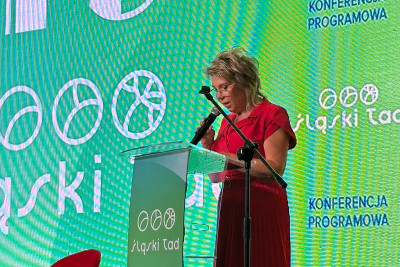
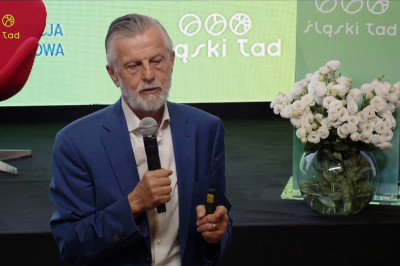
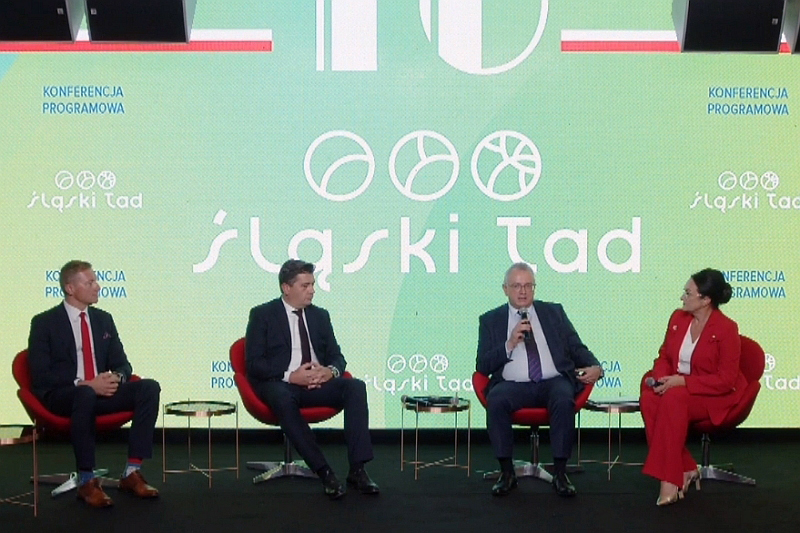
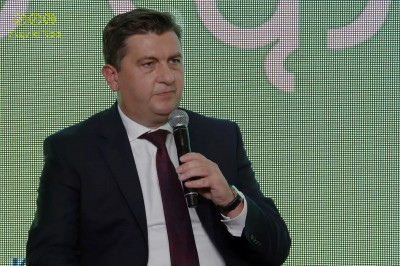
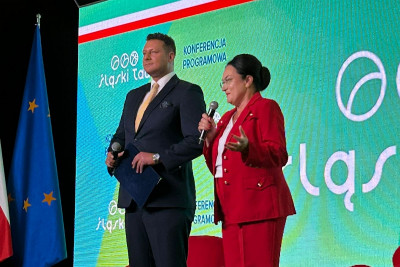
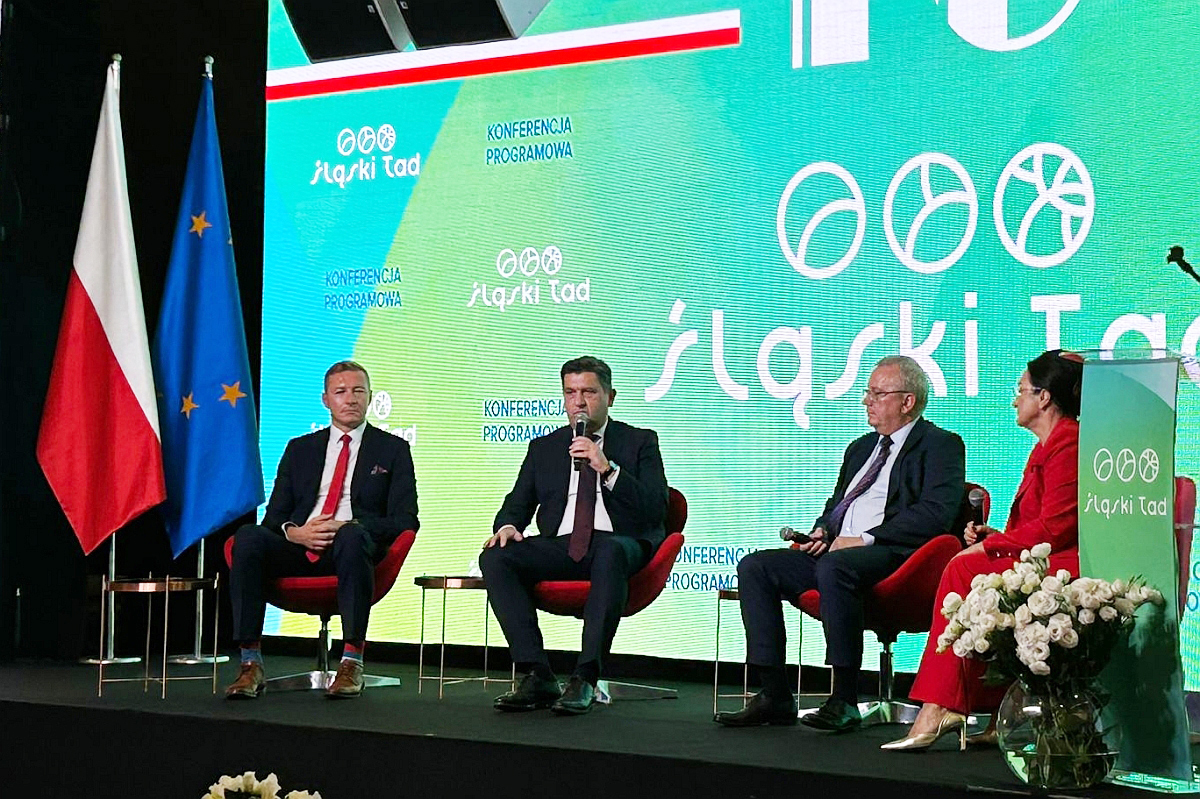
Jacek Sasin, Minister of State Assets, reminded that Poland is trying to align with EU policies on climate protection and energy but it’s not easy because the EU should take into account the specifics of individual countries. Immediate departure from coal would be extremely irresponsible and would threaten social catastrophe in Silesia as well as economic consequences throughout the country. If the transformation is to be fair, emphasized the head of the Ministry of State Assets, it must have social acceptance and external support because the massive costs of change exceed Poland’s capabilities.
“We are dealing with strong pressure, we could even call it blackmail, which is the EU climate policy. This policy makes Poland, which has the opportunity to produce energy from the cheapest raw material, coal, produce this energy at a very high cost. Not because the raw material is very expensive, or our workforce is expensive, or we can’t do it technologically. We are simply burdened with huge fees, massive European taxes, which are emission charges,” said Minister Sasin.
“Our remarks in Brussels are often received with a lack of goodwill. An example is the attempt to kill our mining industry with the methane regulation. There will be further attempts to slow down our development because the EU means not only cooperation but also very strong competition,” said Jacek Sasin, emphasizing that “maintaining the capacity to mine coal is a guarantee of our energy security.” The Ministry of State Assets, in cooperation with coal companies, including PGG S.A., plans the production volume for the coming years, dealing with periods of coal oversupply and deficit. The minister assured that the coal sector would continue to operate in accordance with the social agreement for decades. It requires support because it cannot sustain itself on free-market principles due to rising ETS fees and anti-coal regulations. Jacek Sasin explained that it would be impossible to respond to crises without strong state-owned companies, which are tools of Poland’s security system.
Janusz Cieszyński, Minister of Digitization, emphasized that PiS is the only political group with a country digitization program that takes it seriously. He assessed that Silesia has enormous potential, has always been known for its inventiveness and innovation.
“The digitization process, as it opens up new unlimited possibilities, also carries real risks that need to be minimized or neutralized through raising awareness among users and using multi-level security measures. Currently, especially during the ongoing war on our eastern borders, we are increasingly exposed to cyberattacks, which are taking on increasingly subtle forms,” said Minister Cieszyński.
Prof. Andrzej Zybertowicz, Advisor to the President of Poland, addressed issues of sovereignty in a globalized world dominated by technological giants in the age of the digital revolution. He pointed out that Poland still cannot “react strategically,” and since entering the EU, we have been learning to play on new fields. He argued that complete state sovereignty is impossible in modern relations; it has a shared character. What matters is where and who decides on the rules of this division.
Deputy Minister of State Assets Piotr Pyzik and Silesian Voivode Jarosław Wieczorek assessed that the region can find its way in the transformation processes, attracting advanced investments, including research and development.
“The transformation of the energy system must ensure energy security and economic efficiency in the perspective of the coming decades, so it must be based on sources resistant to destabilization,” said Deputy Minister Pyzik.
During a panel discussion with the heads of the largest companies, Przemysław Kołodziejak, Deputy President of PGE S.A., pointed out that Russia’s wartime attacks on energy infrastructure in Ukraine show the true importance of energy for the functioning of modern states. He stated that the company allocates as much as PLN 26 billion annually for ETS fees, and the system has degenerated, becoming a burden for industry instead of supporting it, as intended.
Tomasz Rogala, CEO of PGG S.A., reminded that thanks to China and India, the world has set a record for coal production and consumption (8.6 billion tons), and the trade balance with the Middle Kingdom is highly unfavorable to the EU and is deteriorating rapidly. In Poland, the social agreement on the operation of mining until 2049 is the element introducing real order because it allows for rational investment in the industry. Coal production is a guarantee for the country, and its value can be expressed, for example, by comparing the cost of energy equivalent to native coal in natural gas (PLN 200 billion more expensive) or imported coal (PLN 50 billion more expensive).
Mariusz Wielkopolan, President of JSW Nowe Projekty S.A., emphasized the importance of coking coal mining – a raw material necessary for renewable energy technology.
Artur Warzocha, Deputy President of Tauron PE S.A., described ambitious and costly investment plans for making distribution networks for electricity flexible and intelligently.
